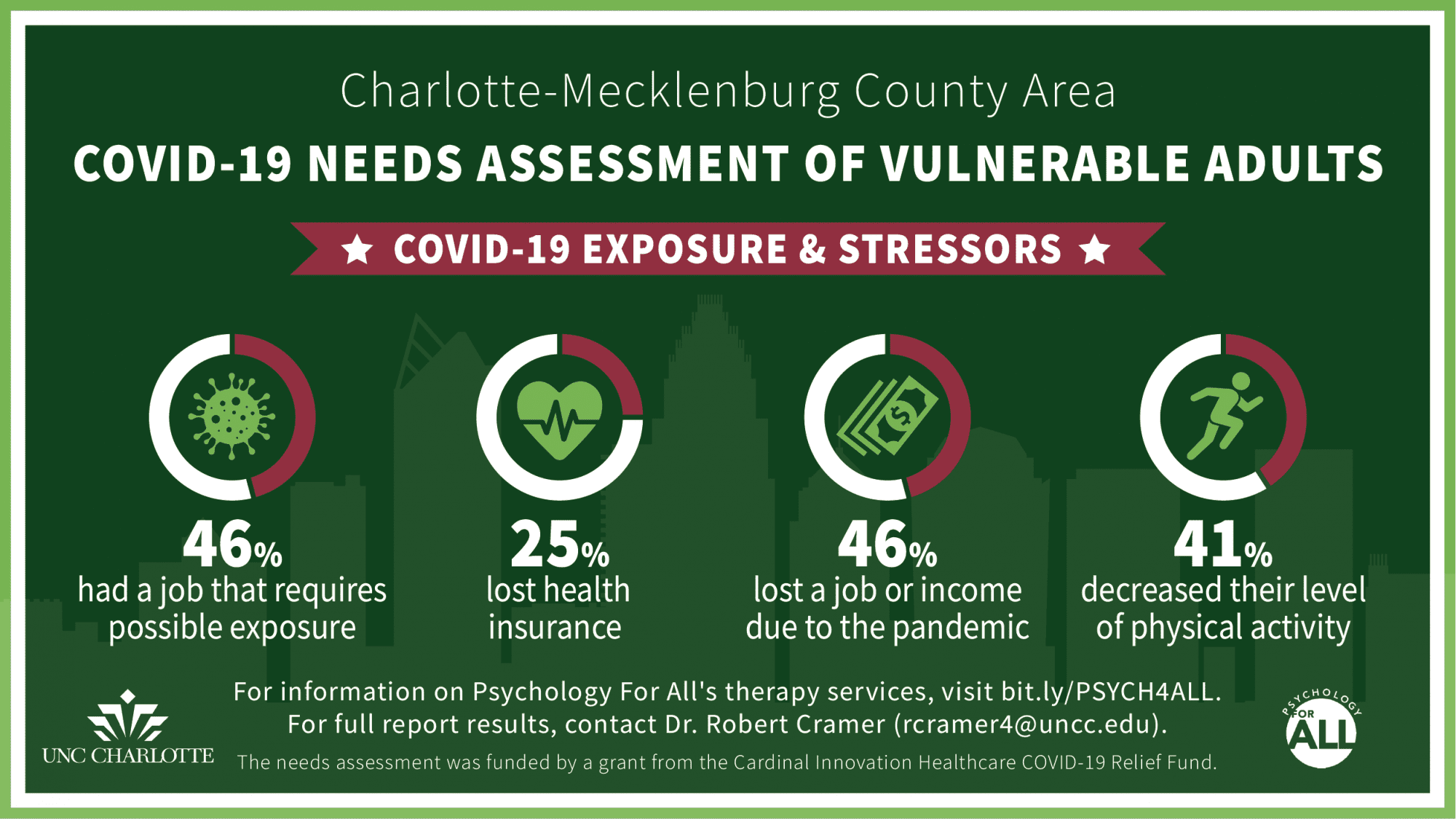Study Assesses COVID-19 Impact on Vulnerable Populations in Charlotte

A new study released by UNC Charlotte researchers has found the COVID-19 pandemic is associated with concerning mental health effects among vulnerable community members in Charlotte.
The study assessed COVID-19-specific stress, rates of mental health symptoms, alcohol use, domestic violence, relationship quality and coping efforts, and interest in and barriers to low cost mental health services. It was funded by a grant from the Cardinal Innovations Healthcare COVID-19 Relief Fund awarded to the UNC Charlotte team and its nonprofit partnering organization Psychology for All. It surveyed adults who live in Mecklenburg or one of several surrounding counties and have an annual household income of $60,000 or less.
UNC Charlotte Department of Public Health Sciences professor Rob Cramer, who led the study, said, “We need to understand the unique challenges faced by the most vulnerable members of our community. Only by gaining a sense of COVID-19 stress, reactions, and mental health challenges can we devise strategies to help. This project will allow us to do follow-up work in the enhancing of therapy services and designing public health strategies aimed at limiting the negative effects of the pandemic.”
Scores by mental health screeners indicated elevated levels among the surveyed group. Responses showed raised rates of probable risk for posttraumatic stress (83.3%), problematic drinking (50%), depression (52%), generalized anxiety (43%) and suicide risk (31%).

The most common self-reported coronavirus-related stressors were exposure at work, lost job or income and increased home responsibilities. While less than one-third reported direct exposure or illness, almost three-quarters reported knowing someone close who was affected by COVID-19.
Researchers offered a number recommendations for COVID-19 related prevention and intervention in the Charlotte-Mecklenburg area, including more community-based and online mental health and suicide prevention programming, enhanced health service provider screening for domestic violence and greater emphasis on public health approaches to psychosocial impacts of the pandemic.
Respondents to the survey did express high rates of willingness to use in-person and virtual individual therapy sessions.
“Psychology for All and our UNC Charlotte team are disseminating this information across the region. We’re working on writing up key findings for scientific publication and planning next stages to seek funding toward developing intervention work to help those in need in Charlotte,” Cramer said.
by: Katie Rayner, CHHS Communications Graduate Assistant